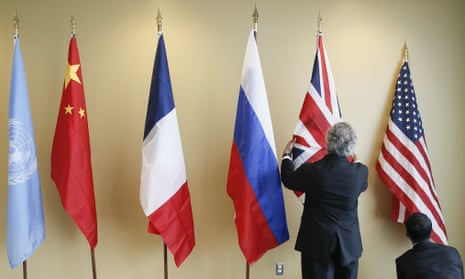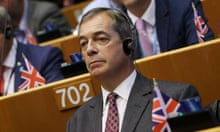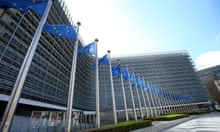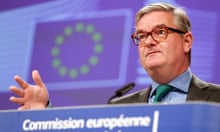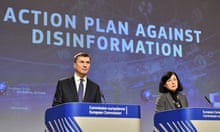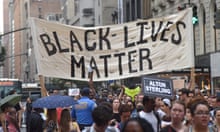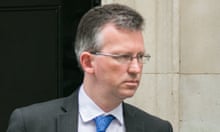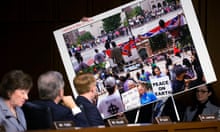An emboldened Russia will on Thursday attempt to discredit Britain’s international reputation at the UN after a series of blunders by Boris Johnson and the Foreign Office led to accusations that the UK had overstated its case that Russia was responsible for the nerve agent attack on the former spy Sergei Skripal.
Although the carefully crafted international alliance in support of the UK has held together despite Russian pressure, ministers were forced to backtrack from a claim by the foreign secretary that the UK’s chemical weapons watchdog had told him Russia was definitely responsible for the attack.
In a statement on Tuesday the chief executive of the government chemical weapons experts at Porton Down said its tests had shown the sample was of a military-grade nerve agent from the novichok family, but it was not possible to say whether it was of Russian origin.
The Foreign Office, under pressure from the Russian embassy in London, also admitted it had earlier deleted a tweet making a similar inaccurate claim to Johnson.
In an effort to press home its diplomatic advantage, and prevent Vladimir Putin acquiring a near pariah status, Russia announced it had convened a special meeting of the UN security council on Thursday at which it would challenge a letter previously sent to the UN by Theresa May that asserted that Russia was likely to have been responsible for the attack.
During a visit to Turkey, Putin called for a thorough investigation into the poisoning, saying “the speed at which the anti-Russian campaign has been launched causes bewilderment”.
Britain’s embarrassment has largely been caused by Johnson during an interview with the broadcaster Deutsche Welle on 20 March during which he said he had been told by Porton Down that they were categorical that Russia was responsible for the attack.
The inaccuracy, branded a lie by Johnson’s critics, led the Labour leader, Jeremy Corbyn, to claim the foreign secretary had egg on his face and serious questions to answer. He added: “Either the foreign secretary has information that he’s not sharing with Porton Down or it was a bit of exaggeration. I don’t know which it is, but I think we need a responsible, cool approach to this. We need to get to the source of this to prevent it ever happening again.”
In a tweet Johnson hit back saying it was lamentable that Corbyn was now playing Moscow’s game and had “chosen to side with Russia’s spin machine”. He added: “Porton Down identified nerve agent as military-grade novichok. 2) Russia has investigated delivering nerve agents, likely for assassination, and as part of this programme has produced and stockpiled small quantities of novichok. 3) Russia has motive for targeting Sergei Skripal.”
He pointed out that 28 countries had been so convinced by the case they expelled Russian diplomats from their countries.
The setbacks overshadowed the extent to which the UK had fended off a Russian attempt at the Organisation for the Prevention of Chemical Weapons to hijack the investigation into the samples of nerve agent found on the body of Skripal and his daughter, Yulia.
At an emergency executive meeting of the OPCW that it had convened, Russia’s statement calling for a joint British and Russian investigation of the samples was only supported by six states on the 41-strong executive, with 17 abstentions. Nevertheless Russia later claimed it also had the support of China and accused the UK of procedural tricks, outright lies, Russia-phobia and deploying the language of ultimatums.
But the OPCW chief executive, Ahmet Üzümcü, said Britain was following normal procedures, adding that the OPCW report into the nature of the samples was likely to be completed next week. He added: “The collection, splitting, and transportation of the samples were carried out in line with the relevant procedures of the secretariat. The chain-of-custody was fully maintained.”
He said state parties were not informed of the designated laboratories selected by the secretariat to perform the technical analysis.
Although it was for the UK to decide whether to share the report, Üzümcü said, Britain had expressed its wish to be as transparent as possible and had already indicated its preference for disclosure of the report to other states parties.
John Foggo, the UK’s acting representative to the OPCW, defended Britain’s refusal to allow Russia be involved in the investigation, saying: “We will not agree to Russia’s demand to conduct a joint investigation into the attack in Salisbury because the UK – supported by many other countries – has assessed that it is highly likely that the Russian state is responsible for this attack, and that there is no plausible alternative explanation.
“There is no requirement in the chemical weapons convention, for a victim to engage the likely perpetrator in a joint investigation. To do so would be perverse.”
He continued: “Analysis of samples is being carried out by independent, impartial experts, through the designated laboratory system, which all state parties support, in accordance with the convention. The work of the technical secretariat must remain impartial. Russia’s refusal to accept the results of the OPCW’s investigation unless Russian experts participate in it suggests that Russia is opposed to the independence and impartiality of the technical secretariat and is nervous about what the results will show.”
Significantly, the EU fully backed the UK, saying it had the full confidence in the British investigation and lauded its collaboration with the OPCW. Accusing Russia of a flood of insinuations against Europe, the EU added it was imperative that Moscow started to cooperate with the OPCW.
